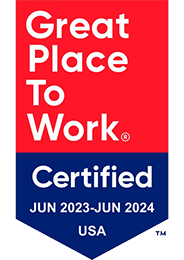As seniors age, their dietary needs change. One important consideration for seniors is the amount of caffeine they consume. Many seniors don’t realize that they are consuming more caffeine than they think they are. That is especially true if seniors are just going by what they always did in terms of drinking coffee and taking in caffeine in other ways. Senior home care providers can help aging adults to get a handle on caffeine in their lives and start to cut back a bit.
What Is Caffeine?
Caffeine is a stimulant found in a variety of everyday products including coffee, tea, energy drinks, soda, and chocolate. It can also be found in certain medications and supplements. Seniors may be getting caffeine from a variety of sources every day. When consumed in moderation, caffeine can provide a boost of energy and alertness. However, too much caffeine can have negative effects on seniors, such as restlessness, anxiety, irritability, and disrupted sleep. Seniors should talk to their doctors about whether they should limit their caffeine intake.
Where Else Is Caffeine Found?
Common sources of caffeine include caffeinated drinks like coffee, tea, energy drinks, and soda. Caffeinated foods, such as chocolate and certain cereals, also contain caffeine. However, there are other hidden sources of caffeine that seniors should be aware of. Certain medications and supplements can contain caffeine, so it is important to read the labels and consult with a doctor before taking anything. For example, pain relievers, diet pills, and cold medicines may contain caffeine. Additionally, certain energy supplements and even some vitamins can contain caffeine.
Health Risks for Seniors with Caffeine
Over the years, seniors can become more sensitive to the effects of caffeine. This may mean that they no longer can take in the same amounts of caffeine that they once did. Some people may find that they are more likely to experience high stress levels or even dehydration because they’re consuming too much caffeine. Some medications can also be affected by caffeine usage, so it’s important to understand individual risk factors.
Reducing Caffeine Intake
The main reason lots of people avoid cutting back on caffeine is because the side effects of caffeine withdrawal are typically unpleasant. Headaches, anxiety, nervousness, and trouble sleeping are just some of the side effects that people can experience when they suddenly cut out caffeine. It’s not a good idea to go that route for most people. Gradually reducing caffeine is the smart choice, and senior home care providers can help aging adults to do this easily. Home care providers can help to track caffeine intake and work with seniors to gradually cut back caffeine intake.
It is important for seniors to be aware of the hidden sources of caffeine in their diets, especially if they are becoming sensitive to caffeine. Reading labels and consulting with a doctor before taking any new medications or supplements can help a lot. Senior home care providers can help family caregivers to ensure that their aging adults are caffeinating wisely.
If you or an aging loved one is considering senior home care in Lewisville, TX, please contact the caring staff at Clear Path Home Care today. Call 817-928-5788
Clear Path Home Care provides compassionate, high quality home care in Denton County, Montague County, Cooke County, Grayson County, Fannin County, Lamar County, Wise County, Collin County, Hunt County, Delta County, and Hopkins County in Texas.
- The Importance of Lighting for Seniors in their Homes - June 6, 2024
- Understanding the Importance of Meal Planning for Seniors - May 23, 2024
- Tips for Helping a Senior Parent Shower Safely - May 14, 2024






